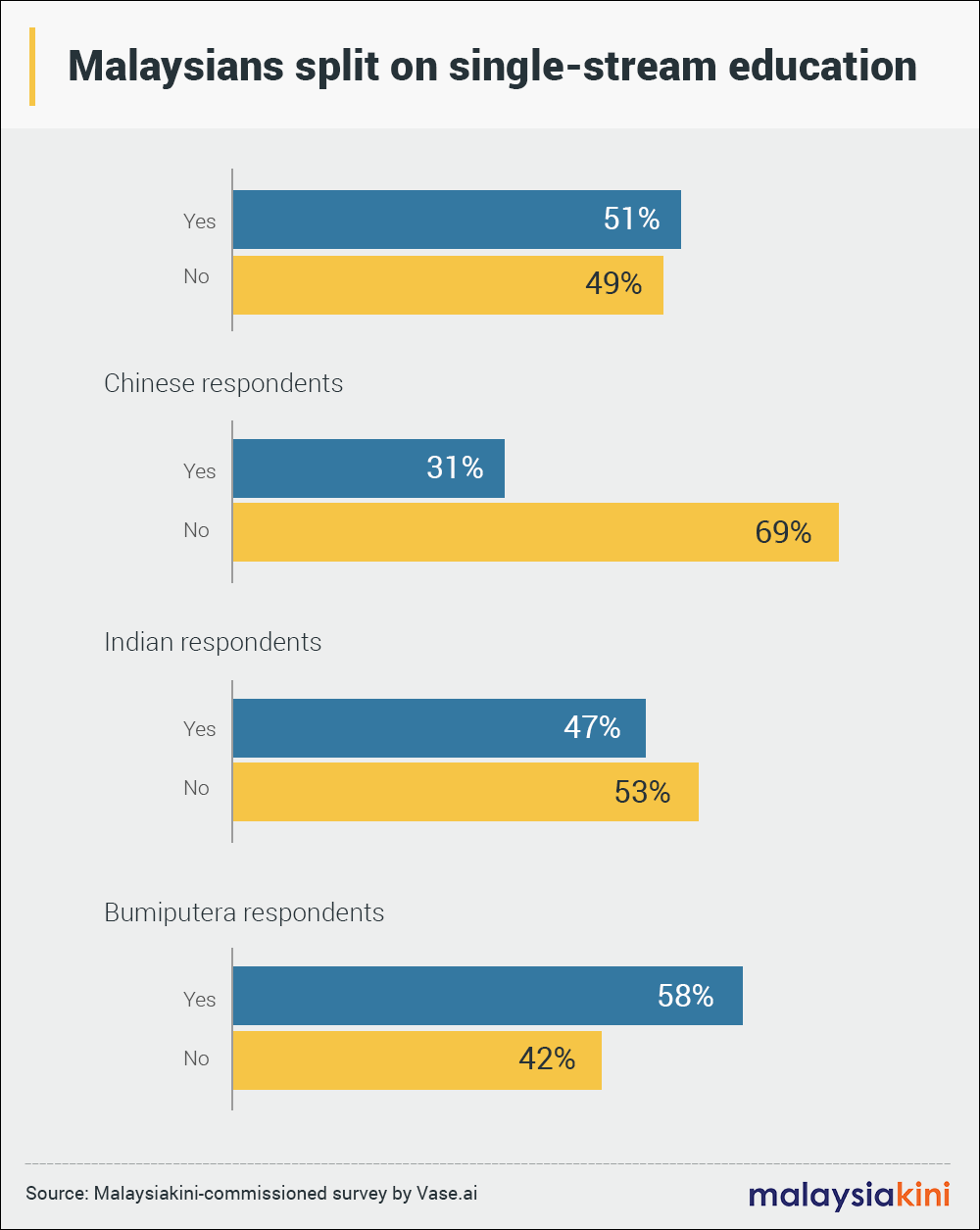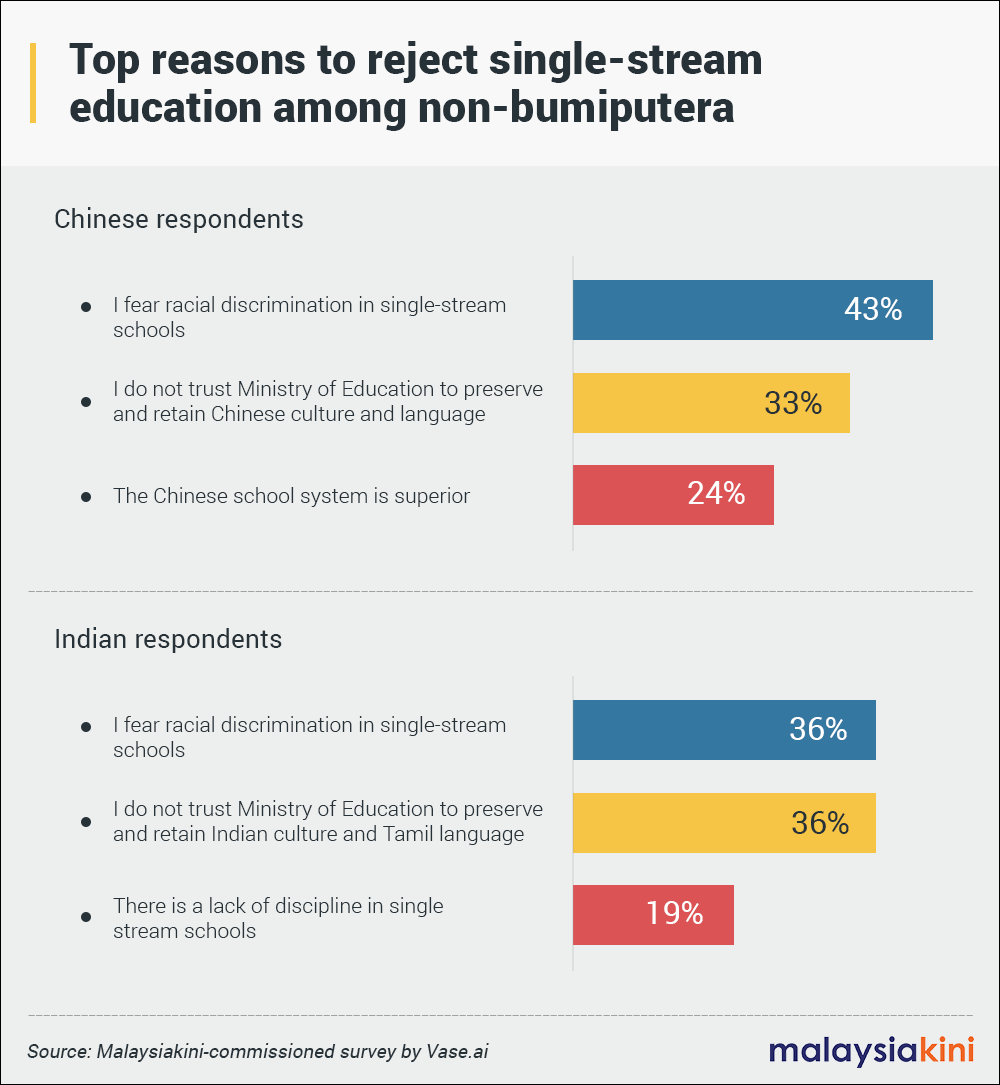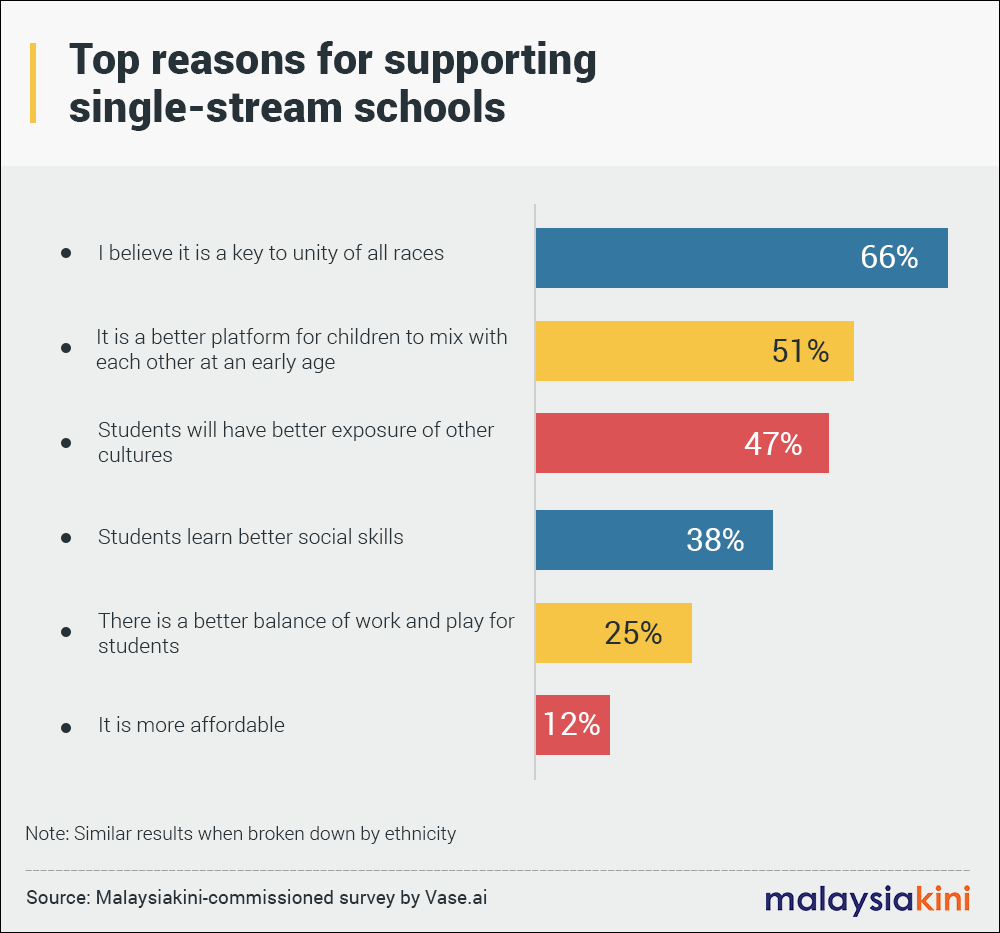Malaysians have split down the middle when it comes to the idea of doing away with vernacular schools, with the top reason for opposition being fear of discrimination in single-stream schools, a survey found.
A Malaysiakini-commissioned survey found 51 percent of respondents supported the idea of only having single-stream education, while 49 percent did not.
The biggest resistance came from ethnic Chinese respondents, with two-thirds opposing the idea, while only 53 percent of ethnic Indian respondents did not support it, the survey by research firm Vase.ai found.
A small majority of bumiputera respondents (58 percent) supported single-stream education.
Some 1,024 respondents nationwide were asked whether they supported a single-stream school, which also means the abolition of Chinese (SJKC), Tamil (SJKT), and Islamic schools at the primary level.
The survey was commissioned as part of Malaysiakini’s research to understand the impact of the separate school systems on integration. The article will be published on the eve of Merdeka Day next week.
On Monday, Rembau MP Khairy Jamaluddin, who has previously advocated for single-stream education, said it would be a “policy nightmare” to get rid of vernacular schools.
He said having a single education system, which includes incorporating commercial private schools and community-run religious schools, would be a “nightmare in terms of politics”.
“I believe it is a non-starter,” the former Umno Youth chief said.
Fear of discrimination strongest among Chinese respondents
The top reason given by respondents for rejecting single-stream schools was fear of racial discrimination.
This was also the top reason given by bumiputera respondents who make up the majority group in Malaysia.
The fear was greater among ethnic Chinese respondents, with 43 percent of them choosing to reject single-stream schools for this reason.
In contrast, 36 percent of Indian respondents and 37 percent of bumiputera respondents feared racial discrimination in single-stream schools.
Culture and language preservation was the second most common reason for rejecting single-stream schools given by ethnic Chinese and ethnic Indian respondents.
In total, 33 percent of Chinese respondents and 36 percent of Indian respondents said they do not trust the Education Ministry to preserve and retain Chinese and Indian cultures and languages, respectively.
Unity was the top reason for proponents of single-stream schools among respondents from all ethnicities.
When broken down, it was found that this view was shared by all respondents who supported the idea, regardless of ethnicity.
Furthermore, 51 percent of them believe that it is a good platform for children of various ethnicities to interact with each other at a younger age.
The idea of a single-stream education system has been mooted many times over the past decades, and each time was met with much resistance.
Last year, the implementation of such a system was one of the resolutions passed at a congress to discuss the future of the bumiputera community, hosted by the Economic Affairs Ministry.
MCA expressed concern over the move, urging ethnic Chinese members of the cabinet to reject the idea and safeguard the existence of Chinese vernacular schools.
Chinese education groups like Dong Zong and Jiao Zong have consistently raised the alarm over what they fear are attempts to assimilate Chinese vernacular schools into single-stream schools.
Coming next week: Whither integration? How Malaysian children are growing up in separate bubbles




